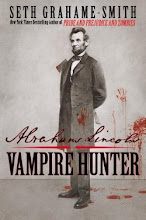April
reading
- Watchmen-Allan Moore
- About Grace-Anthony Doerr
- Discovering The Mind-Walter Kaufmann
- I Am A Strange Loop-Douglas Hofstadter
- Paradise Lost-Milton
- The Book of Dead Philosophers-Simon Critchley
- The Mirror in the Well-Micheline Aharonian
- Radiant Days-Michael Fitzgerald
- The Mythic Image-Joseph Campbell
- The Miracle Life of Edgar Mint-Brady Udall
- Healing the Fisher King-Shelly Durrell
- The Bell Jar-Slyvia Plath
listening
- Perotin-Hilliard Ensemble
- Gossip In The Grain-Ray LaMontagne
- Mysteria-Chanticleer
- Oohs and Aahs-Say Hi
- Noble Beast-Andrew Bird
- Elvis Perkins in Dearland
- The Fountain
- Get Behind Me Satan-The White Stripes
- The Life Aquatic
watching
- Matrix Revolutions
- The Black Hole
- V for Vendetta
- Speed Racer
- Chicago
- Groundhog Day
experiencing
- Say Hi/Telekeneisis!
- The Thermals/Shaky Hands/Point Juncture WA
- Alexander McCall Smith
- Alexis Rockman




















